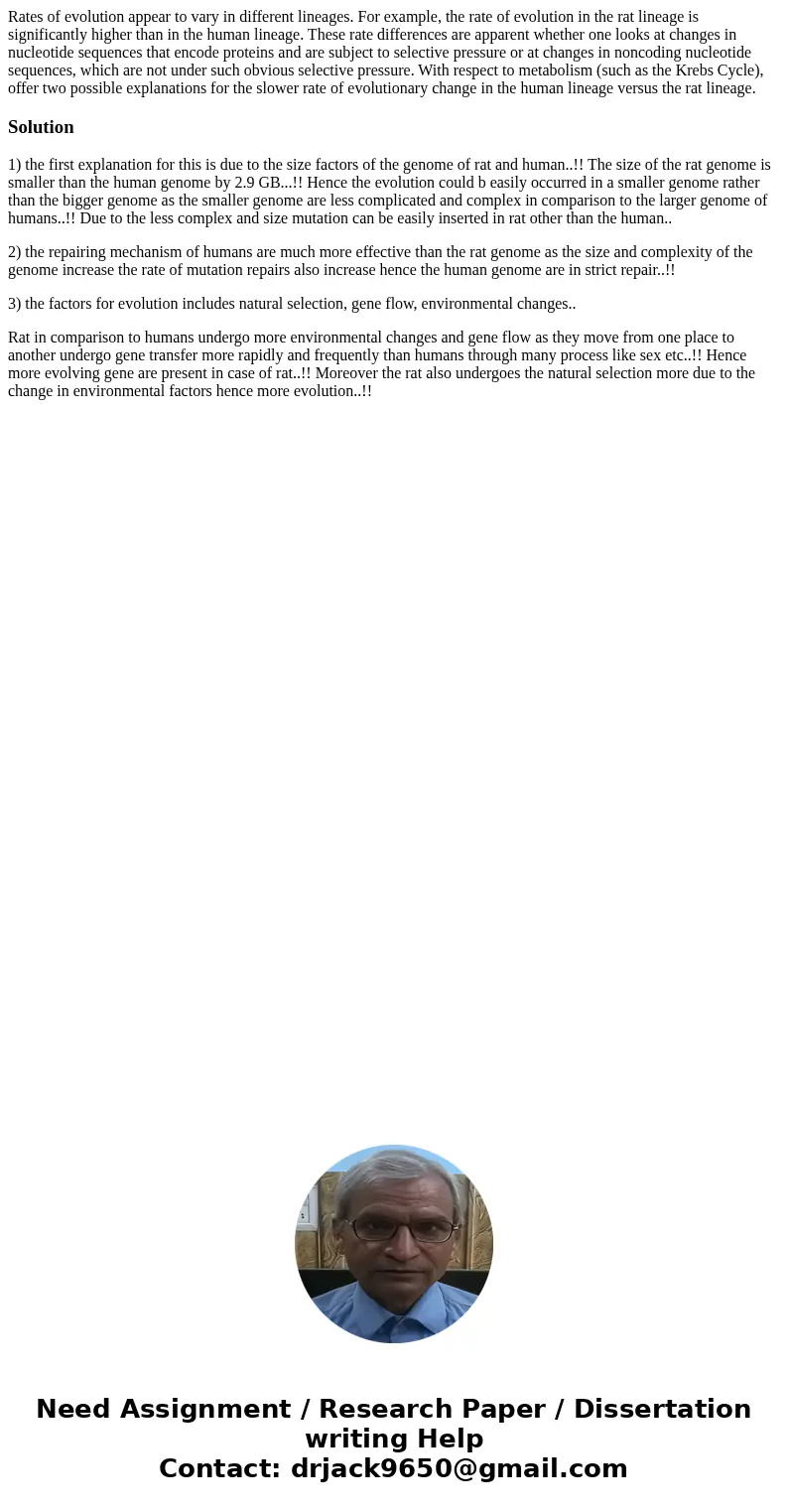Rates of evolution appear to vary in different lineages For
Rates of evolution appear to vary in different lineages. For example, the rate of evolution in the rat lineage is significantly higher than in the human lineage. These rate differences are apparent whether one looks at changes in nucleotide sequences that encode proteins and are subject to selective pressure or at changes in noncoding nucleotide sequences, which are not under such obvious selective pressure. With respect to metabolism (such as the Krebs Cycle), offer two possible explanations for the slower rate of evolutionary change in the human lineage versus the rat lineage.
Solution
1) the first explanation for this is due to the size factors of the genome of rat and human..!! The size of the rat genome is smaller than the human genome by 2.9 GB...!! Hence the evolution could b easily occurred in a smaller genome rather than the bigger genome as the smaller genome are less complicated and complex in comparison to the larger genome of humans..!! Due to the less complex and size mutation can be easily inserted in rat other than the human..
2) the repairing mechanism of humans are much more effective than the rat genome as the size and complexity of the genome increase the rate of mutation repairs also increase hence the human genome are in strict repair..!!
3) the factors for evolution includes natural selection, gene flow, environmental changes..
Rat in comparison to humans undergo more environmental changes and gene flow as they move from one place to another undergo gene transfer more rapidly and frequently than humans through many process like sex etc..!! Hence more evolving gene are present in case of rat..!! Moreover the rat also undergoes the natural selection more due to the change in environmental factors hence more evolution..!!

 Homework Sourse
Homework Sourse